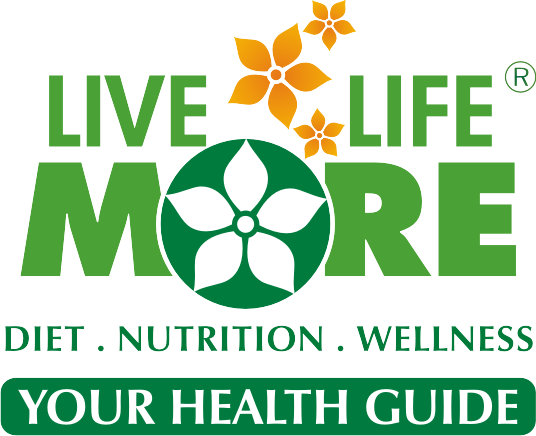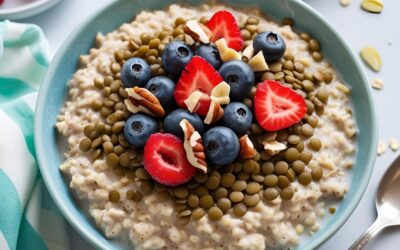Hyperpigmentation, which is characterized by darkened areas of skin, is a common concern that affects people of all ages and skin types. While various factors such as sun exposure, hormonal changes, and inflammation can contribute to hyperpigmentation, recent research highlights a surprising connection – gut health. The health of your gut can significantly impact your skin, including issues like hyperpigmentation. This blog will explore the link between gut health and hyperpigmentation and provide dietary recommendations to promote a balanced gut and healthier skin.
Understanding Hyperpigmentation
What is Hyperpigmentation?
Hyperpigmentation occurs when melanin, the pigment responsible for skin colour, is produced in certain areas in excess amounts, leading to dark spots or patches. Common types include:
- Melasma: Often triggered by hormonal changes, such as during pregnancy or with the use of birth control pills.
- Post-Inflammatory Hyperpigmentation (PIH): Results from skin injury or inflammation, such as acne, eczema, or psoriasis.
- Sunspots: Caused by prolonged sun exposure.
Leading Causes of Hyperpigmentation
- Sun Exposure: UV rays stimulate melanin production, leading to sunspots and uneven skin tone.
- Hormonal Changes: Hormonal fluctuations can increase melanin production, especially in women.
- Inflammation: Skin injuries and conditions like acne can cause localized melanin production, resulting in dark spots.
- Genetics: Some people have a genetic predisposition to developing hyperpigmentation.
The Gut-Skin Connection
How Gut Health Affects Skin?
The gut-skin axis signifies the connection between the digestive system and skin health. An imbalance in gut bacteria, known as dysbiosis, can cause systemic inflammation, thereby worsening skin conditions like hyperpigmentation. Key aspects of this connection include:
- Inflammation: Poor gut health can trigger inflammation throughout the body, including the skin.
- Immune Function: The gut houses a significant portion of the immune system. An imbalance can weaken the immune response, making skin prone to conditions like acne and eczema, which can lead to hyperpigmentation.
- Nutrient Absorption: A healthy gut is a must for the absorption of vitamins like A, C, D, and E, as well as zinc and omega-3 fatty acids that are crucial for skin health.
Foods to Eat for a Balanced Gut and Healthy Skin
To support a balanced gut and improve skin health, including reducing hyperpigmentation, consider incorporating the following foods into your diet:
Probiotic-Rich Foods
Probiotics contain beneficial bacteria that help maintain a healthy gut microbiome.
- Yoghurt: Contains live cultures that promote gut health.
- Kefir: A fermented milk drink rich in probiotics.
- Sauerkraut and Kimchi: Fermented vegetables that provide beneficial bacteria.
- Miso and Tempeh: Fermented soy products that support gut health.
Prebiotic Foods
Prebiotics are fibre that feeds the beneficial bacteria in your gut.
- Garlic and Onions: Rich in inulin, a type of prebiotic fibre.
- Bananas: Contain prebiotic fibre and support gut health.
- Asparagus and Artichokes: Excellent sources of prebiotics.
Anti-Inflammatory Foods
Anti-inflammatory foods can help reduce systemic inflammation, benefiting both gut and skin health.
- Fatty Fish: These are rich in fatty acids like omega-3, which have anti-inflammatory properties.
- Berries: High in antioxidants that combat inflammation.
- Turmeric: Contains curcumin, a potent anti-inflammatory compound.
- Green Tea: Rich in antioxidants and has anti-inflammatory effects.
Foods Rich in Skin-Friendly Nutrients
As per some weight loss programs in Canada nutrients which are particularly beneficial for skin health.
- Vitamin A: Found in carrots, sweet potatoes, and leafy greens, it promotes cell turnover and skin repair.
- Vitamin C: Citrus fruits, strawberries, and bell peppers are excellent sources and support collagen production.
- Vitamin D: Found in fortified foods and produced by the body through sun exposure, it is crucial for skin health.
- Vitamin E: Nuts, seeds, and spinach are rich in this antioxidant, which protects skin cells.
- Zinc: Found in shellfish, seeds, and nuts, it supports skin healing and reduces inflammation.
Lifestyle Tips for a Healthy Gut and Clear Skin
In addition to a balanced diet, some lifestyle practices can further support gut health and improve skin.
- Hydration: Have plenty of water to support digestion and skin hydration.
- Regular Exercise: Promotes healthy digestion and circulation, benefiting both gut and skin.
- Stress Management: Chronic stress can impact gut health negatively and exacerbate skin conditions. Practice stress-reducing activities like yoga, meditation, or deep breathing exercises.
- Adequate Sleep: Ensure you get proper sleep to support overall health, including gut and skin health.
The connection between gut health and hyperpigmentation emphasizes the importance of a cautionary approach to skincare. By prioritizing a balanced diet rich in probiotics, prebiotics, anti-inflammatory foods, and essential nutrients, you can support a healthy gut and improve your skin’s appearance. Incorporating these dietary and lifestyle changes can promote overall wellness and lead to clearer, more even-toned skin. Remember, true beauty starts from within, and taking care of your gut is a crucial step toward radiant, healthy skin.








